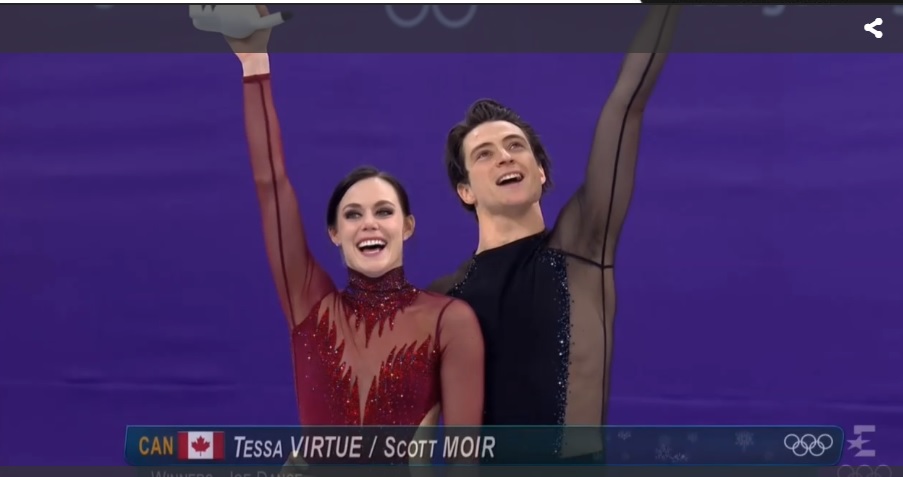I’ve become addicted to David Wilson video interviews. While I'm the furthest thing from a The Skating Lesson fan, I was riveted when Wilson shared parts of his life his life story with TSL. As a choreographer, Wilson is freelance (and, until recently, not on social media), so he's not on any Federation, parental, or training center p.r. list. We have to get him where we find him. (More David Wilson interviews, these done with Goldenskate, are at the bottom of this post.)
He is SO rare – you never get soundbites when he's talking. He's a natural empath, astute, observant, and a committed professional (the latter, to me, means trustworthy) but what comes out of his mouth isn't predictable or canned. He'll offer something, and because he's intelligent, and he's made his experiences count, his opinion is worth hearing, and delightfully entertaining without coming close to catty or bitchy. There will always be something both particular and specific*, a fresh perspective - or at least a refreshing perspective, and he comes out with stuff most people around skating don't. (I.e. - “Basically, I did nothing except chat with her mother.”)**
I regret making fun of him during Dube Davison’s decline; the same program over and over and over. I just knew him then as the guy who got paid for showing the cast of Yuna Kim's summer shows how to point while shaking their shoulders, and for the annual pasting of Dube Davison's unchanging long program onto some new dirge. It's obvious, looking back, that with D&D, he was in a Sasha Cohen situation:
And I loved that he talked money, even a little bit. He doesn't say "Things were tight." or "It was a fraction of what I charge now - I should have charged more." Nah. He's not generic (cause what does "tight" mean to him? And what is a fraction of what he charges now? Everybody would have a different idea.).
Like a lot of people, most skaters would tell you who they hooked up with last week before getting specific about money. Because he told us, we know that when Wilson was starting out, he charged $30.00/hour, had 10 hours of choreography a week, and his rent was $450.00/month. ("So I was fine.") This is the stuff I love about him.
Which brings me to Virtue and Moir. As described in the Goldenskate video below, Wilson is "collaborating" with Dubreuil Lauzon on Virtue and Moir's 2016-17 season choreography. This means Wilson is the one creating it, and his collaborators are only Virtue and Moir themselves. The collaboration with DL part is for keeping up the fiction that Dubreuil Lauzon know what the hell they're doing, and that their training center's ascendancy isn't just (another) massive scam foisted upon the sport.
After watching more of Wilson's work where he has real talent and musicality to work with, for my money - and knowing they couldn’t officially use Marina Zoueva - Virtue and Moir are working with the only other truly musically astute choreographer in figure skating who is also versatile. He’s unlike Lori Nichol, who has a characteristic style, particularly with women, that is more or less imposed upon the skater. If it's a good fit, terrific. If it's not, the skater is in trouble, because the skater has to adapt to her. David Wilson is able to see the natural rhythm and movement of a skater and build or stretch the skater starting from that point. So he produces musically intelligent movement, and, like Zoueva, understands momentum, extending it, building tension, releasing it, he knows how to use fast (not quick, not busy) skating to propel a program through slow music. And he understands a skater's personality and temperament, how to showcase both attributes comfortably and naturally (for the skaters) and advantageously (for the judges), so nobody's stuck competing with an ill-fitting persona.
Should we, in the upcoming months, learn nothing interesting ("interesting", not "personal") from David Wilson about Virtue and Moir - as people, as skaters, about their process, about any adjustments after two years away, about any opinions they may have, about any program or music choices considered and abandoned - if there's no illuminating reference to any of their family, their input into the programs, their personalities - it will because Virtue and Moir are control freaks capable of shutting Wilson down, and have no desire to pollute the bullshit they diffuse daily into the atmosphere with even the most innocuous variety of candor.
There are three Goldenskate interviews with David Wilson below. He talks Patrick Chan's comeback. Working with Virtue and Moir. Working with Sasha Cohen. Guess which interview is boring. Yet incorporates a little DL promotional talking point (and that's not even the blandest part).
Don't let them change you, David.
*Specific -Clearly defined or identified or a precise detail. Particular -An individual item, as contrasted with a universal quality.
**The ubiquitous skating parent is a hallmark of the sport, kept in the shadows in conventional figure skating media, unless controversy shoves them into the spotlight. We can't have a clear picture of a skater's career without a clear understanding of the type of parent they've got and that parent's level of involvement. Except when Wilson describes developing a program with a skater. Then we know.

